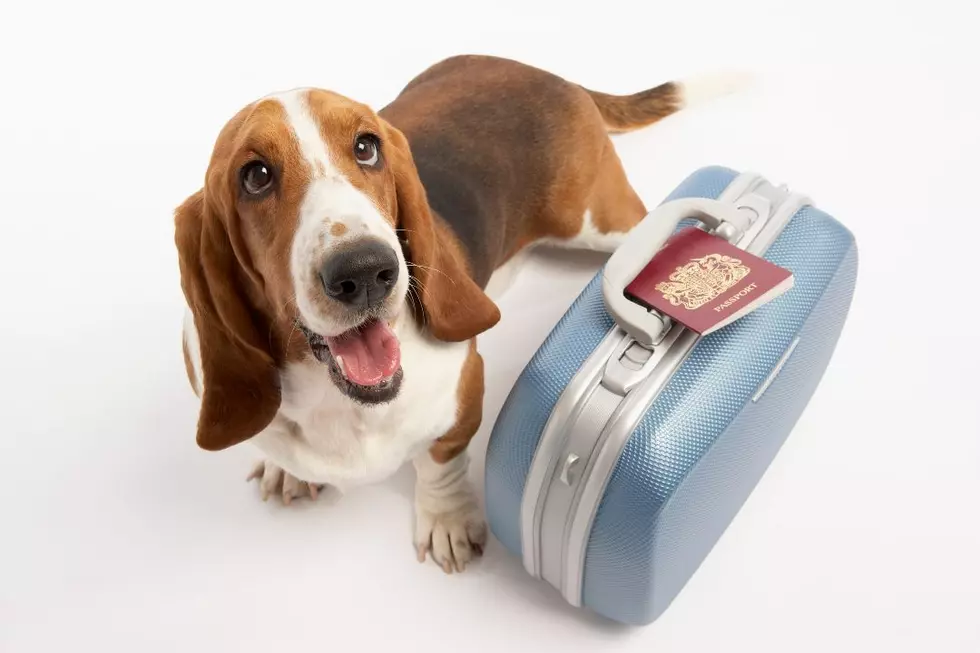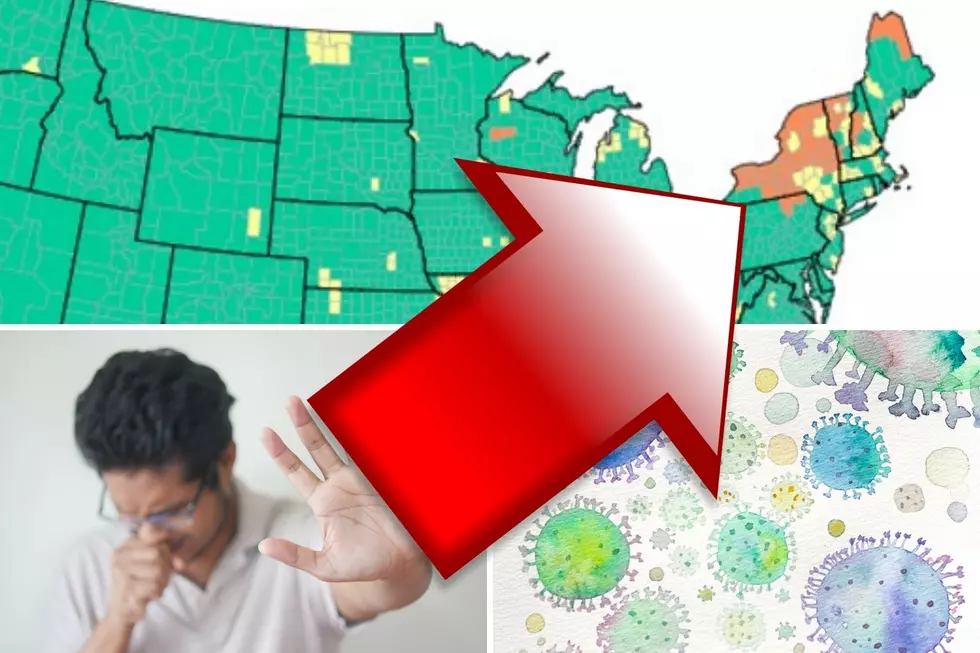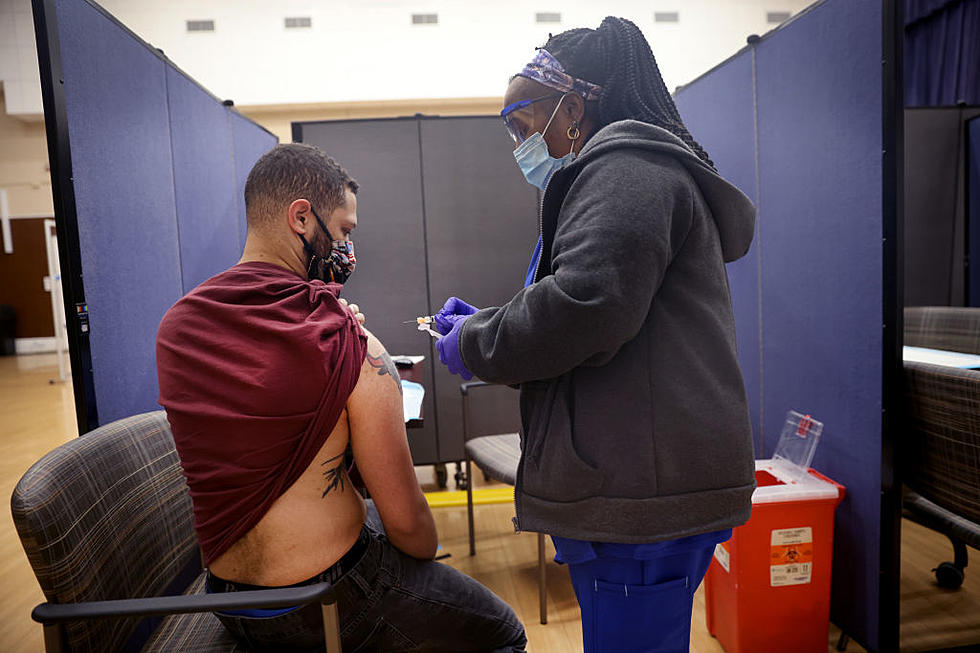
Canine Influenza In CNY Can Be ‘Deadly’ For Dogs
Did you know your dog can get the flu? Canine Influenza Virus (CIV or dog flu) is now in CNY, and It could kill your dog if you ignore the symptoms.
The CDC describes Canine influenza as a contagious respiratory disease in dogs caused by specific Type A influenza viruses. To date, there has been no evidence of canine influenza viruses from dogs spreading to people. They say Canine influenza A (H3N2) viruses are different from seasonal influenza A (H3N2) viruses that spread annually in people.
WKTV reports dog flu has spread across the United States and has its made its way into New York State with confirmed cases in NYC and questionable cases in Central New York. Doctor James Gilchrist with the Waterville Animal Clinic told WKTV that it's very similar to the type of flu people get. He said if symptoms are ignored, it could be life-threatening. It's spread through saliva and dogs sharing toys and food bowls...it spreads easily in communal places like dog parks and encourages owners to consider vaccinations.
"I think it's important for any owner who knows when their pet is at risk, or in an at-risk situation." He adds, "We do want to see them and so we can hopefully contain and control the spread of any flu to other canine patients." [WKTV]
Waterville Veterinary Clinic is holding a dog flu clinic on October 26.
Here's an updated map of the dog flu across the country. As you can see NY is infected with both strains.
DogFlu.com: This highly contagious disease began as an isolated episode of respiratory disease in one state and has now become a national health concern for all dogs.
- Dogs have no natural immunity to Dog Flu because it is a newer virus.
- This virus is easily spread by mobile dogs, like rescue dogs or ones that travel and move with their owners. This is how Dog Flu has spread from state to state.
- Many dogs are boarded, go to daycare, or visit grooming facilities where close contact with other dogs puts them at high risk.
Dog Flu Spreads Easier When They're Social
- Direct contact: when dogs kiss, lick or nuzzle each other
- Through the air: from a cough or sneeze
- Contaminated objects: doggie bowls, toys, doorknobs or clothing
- Human touch: hands of pet owners, veterinary clinic staff or shelter workers
The Following Information Is From The CDC:
What are signs of canine influenza in dogs?
The signs of this illness in dogs are a cough, runny nose, fever, lethargy, eye discharge, and reduced appetite, but not all dogs will show signs of illness. The severity of illness associated with canine flu in dogs can range from no signs to severe illness resulting in pneumonia and sometimes death.
Most dogs recover within 2 to 3 weeks. However, some dogs may develop secondary bacterial infections which may lead to more severe illness and pneumonia. Anyone with concerns about their pet’s health, or whose pet is showing signs of canine influenza, should contact their veterinarian.
How serious is canine influenza in dogs?
The percentage of dogs infected with this disease that die is very small. Some dogs have asymptomatic infections (no signs of illness), while some have severe illness with infection. Severe illness is characterized by the onset of pneumonia.
Is there a test for canine influenza?
Testing to confirm H3N8 and H3N2 canine influenza virus infection in dogs is available. Your veterinarian can tell you if testing is appropriate.
How is canine influenza in dogs treated?
Treatment largely consists of supportive care which helps to keep the dog hydrated and comfortable while its body then mounts an immune response to the infection to facilitate recovery. In the milder form of the disease, this care may include medication to make your dog be more comfortable and fluids to ensure that your dog remains well-hydrated. Broad-spectrum antibiotics may be prescribed by your veterinarian if a secondary bacterial infection is suspected.
Is there a vaccine for canine influenza?
Vaccines to protect dogs against both H3N8 and H3N2 canine flu are available in the United States. Your veterinarian can provide additional information about these vaccines and whether you should consider vaccinating your dog.
My dog has a cough. What should I do?
Consult your veterinarian to determine if an appointment is needed so the veterinarian can evaluate your dog and recommend an appropriate course of treatment.
More From 96.1 The Eagle









